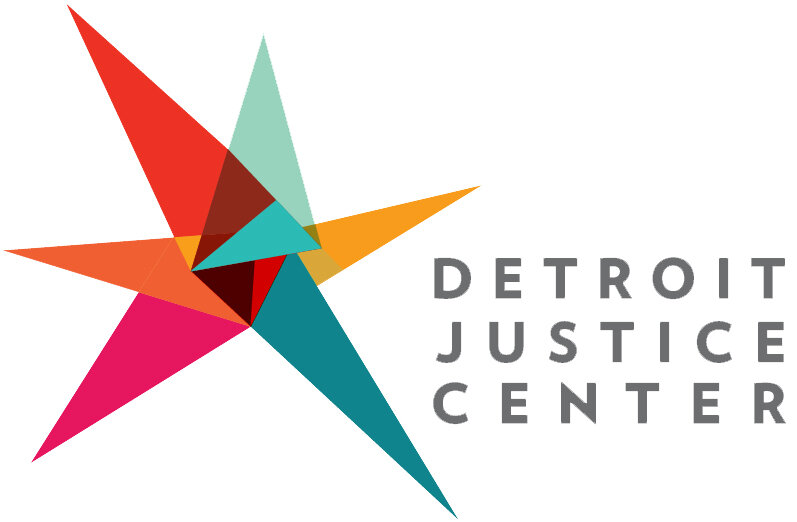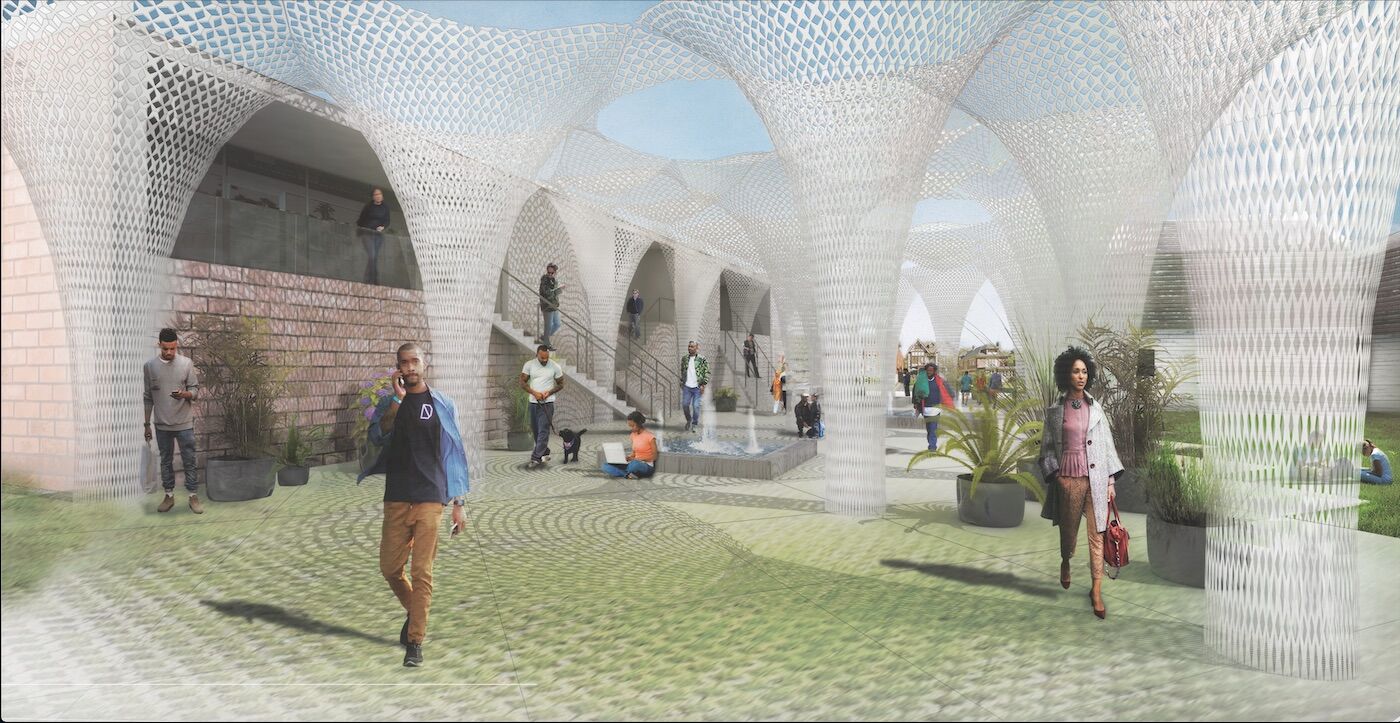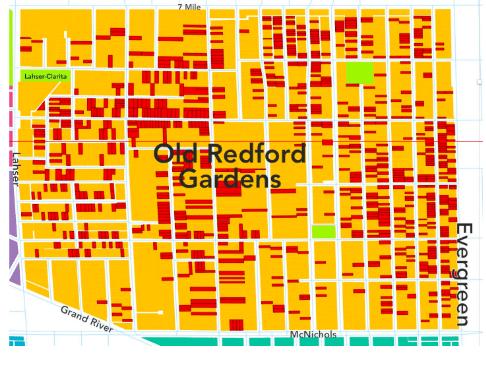Design illustration of American Riad
How Do You Create Affordable Housing in “New” Detroit?
The Detroit Justice Center takes on two new community land trust projects, showing how collective ownership can create sustainable housing models for Detroit’s future.
One common question arising from Detroit’s current development boom is how to create and sustain affordable housing for long-time Detroit residents, particularly in the neighborhoods outside of downtown and midtown. Community Land Trusts have been proffered as a solution to the issue, and the Detroit Justice Center’s (DJC) Economic Equity attorneys Eric Williams and Whitley Granberry were eager to begin working with community groups to demonstrate their viability. Williams explained, “the community land trust model is the antithesis of gentrification. Rather than development happening to a community, the community shapes and drives development. DJC is excited to support communities who have embraced this model.”
This past winter, the DJC’s Economic Equity attorneys partnered with the Detroit People’s Platform to host a series of public workshops on community land trusts as a way of educating community members about their potential. Following the workshop series, DJC put out a request for community land trust projects, which we will provide legal assistance to through the duration of the process. Today, we are proud to announce that we will be working with American Riad and the Old Redford Community Development Corporation to provide legal assistance to their community land trust projects. The American Riad project is based in the North End, while Old Redford CDC is in Old Redford in the northwest of Detroit.
We hope that by working with these two groups to create community land trusts, it will demonstrate that “development without displacement,” as Doug Russell from Old Redford CDC put it, is possible. While the two projects differ in size and scope, both are being taken up by local community groups invested in creating long-term affordable housing and increasing current neighborhood stability.
The American Riad is an ambitious design project developed out of a collaboration between local community groups like the Oakland Avenue Artists Coalition (OAAC) with Ghana Think Tank. The riad was a solution offered by a Morrocan design think tank to combat isolation and bring neighbors together in shared space. While the project has garnered attention for its innovative use of art and design, OAAC member Ulysses Newkirk explained that “the big deal is that [the neighborhood] won’t be affordably available for future generations” without a community land trust. “We’re making it sustainable for elders and people with limited abilities right now,” he continued, “and we’d like to preserve some of the geography and culture to pass on to future generations.” This plan extends beyond the riad structure, entailing the formation of a community land trust for residential property in the area. Newkirk, who works out of the Red Door Digital space on Oakland Avenue, estimated that the area has been attracting 1-2 new neighbors a month. The landscape is undoubtedly shifting, and residents are hoping to hold on to as much of the neighborhood as they can.
A map of Old Redford Gardens. Areas highlighted in red are Detroit Landbank Properties
While there has been a boost in development in Old Redford, residents have seen a disintegration of population density in their neighborhood. Doug Russell spoke about the community land trust as metaphorical “sandbags while the river is flooding.” The project is seeking to buy properties from the Detroit Land Bank, specifically on Pickford, running east to west between Lahser and Evergreen, where there is roughly a mile of uninhabited property. They’re also looking to fill in gaps in another mile stretch running north to south on Trinity, where there are populated pockets with large gaps in between. The project has garnered the support of residents as well as members of city council. “It’s important that government works together with members of the community to better determine vacant land use in their neighborhoods,“ said Councilman James Tate (District 1). “I believe that Community Land Trusts can be one of those collaborative tools that provide potential solutions to equitable distribution of land as well as the potential displacement of long-term residents living near major development projects.”
The Detroit Justice Center’s mission involves creating and sustaining a more equitable and just city for Detroiters, and we see community land trusts as a core piece of that work. While the city continues to shed long-held affordable housing options, it is crucial that protections are put in place for the future. We look forward to working alongside these two groups and helping them develop their dreams of affordable, community-based ownership in their neighborhoods.



